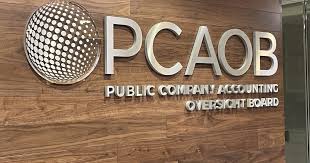
How AI Copilots Could Be Deployed to Improve Audit Quality
Recent rises in the rate of inspection findings by the PCAOB have alarmed the body governing audit firms and raised concerns across the industry about what can be done to reverse the trend. Audit quality, like most topics in the profession, is being considered as a potential use case for AI initiatives. As firms struggle to recruit, train and retain talented auditors, creative solutions are required to maintain audit quality. One such potential for this technology with respect to audit quality is the manner in which AI copilots could be trained with the proper methodology and deployed to assist auditors in real time, offering suggestions to correct common errors.
In a previous post, we dove into the trend in PCAOB’s findings and broke down the data to see what subsets of firms we’re under or overrepresented and what conclusions we could draw accordingly. Now, we’ll be looking at how some of the trends identified and published by the PCAOB may be detected and mitigated in the future by AI audit quality assistants.
Findings highlighted by the PCAOB with respect to recent inspections of PwC, for example, include the identification of controls related to significant accounts and assertions. During audit planning, ensuring sufficient coverage to support a controls-reliant audit approach can be challenging, particularly for auditors with new or rapidly evolving clients. When evaluating the extent of controls coverage firms usually assess whether they have in-scope controls to mitigate each risk identified within a particular subset of transactions which in turn relate to a financial statement account and assertion. Given the size of some audits this process of internal review during planning can be time consuming and prone to error. Increasingly, firms have attempted to build checks into their audit platforms which can highlight errors in which an account assertion may not have sufficient controls coverage. However, AI assistants, trained with firm methodology, could review the mapping of these controls to risks, as well as the mapping of risks to associated accounts. Such a review would inherently be qualitative as well as quantitative in nature, reviewing not only if there are numerically enough controls to mitigate each risk but also whether the control itself (based on its description) does mitigate the risk. Further, challenging where and how these risks relate to the account assertions, a task that involves a fair degree of audit experience and professional judgment. While there may be hesitation to involve AI in such decisions, its role would primarily be to provide insight and suggestion compared to a database of known risks and controls, rather than actively making determinations of audit planning.
Testing of these controls was raised in both PwC and KPMG’s inspection reports. While the performance of this testing itself is a topic of discussion in its own right, the quality assurance component is a facet with significant potential for assistance from AI copilots. For instance, common errors caught in review by quality assurance teams in the testing of controls include insufficient testing sample sizes and incomplete or incongruent information in testing templates. In the first instance, an AI copilot could scan an entire audit file, reviewing the frequency of controls, their expected sample sizes and their actual testing sample sizes, highlighting individual controls with potentially shortfalls. Scanning these testing files could also reveal broader inconsistencies in the files. In another example, an audit testing template populated with for an IT Dependent Manual Control which does not have an associated IT system identified could also potentially be detected by an AI quality assistant. While these examples are fairly objective, quality assistant copilots would inherently be trained on more and more training data, being able to evaluate more nuanced and subjective elements of audit quality.
As firms look to integrate the learnings from PCAOB inspections into their audits, quality assurance departments are restricted by the capacity of their most experienced professionals. Coupled with the prevailing sentiment of a decline in new graduates pursuing accounting and audit professions specifically, the talent to replace and supplant those in these positions could be increasingly difficult to find for both large and small firms. While looking to attract and retain talent, firms would also be wise to explore the potential for certain subsets of audit quality to be reviewed and detected by AI copilots. Where these solutions are proven to be effective, the buy-in and training to successfully deploy such applications will also dictate which firms are successful in reversing recent disconcerting trends.